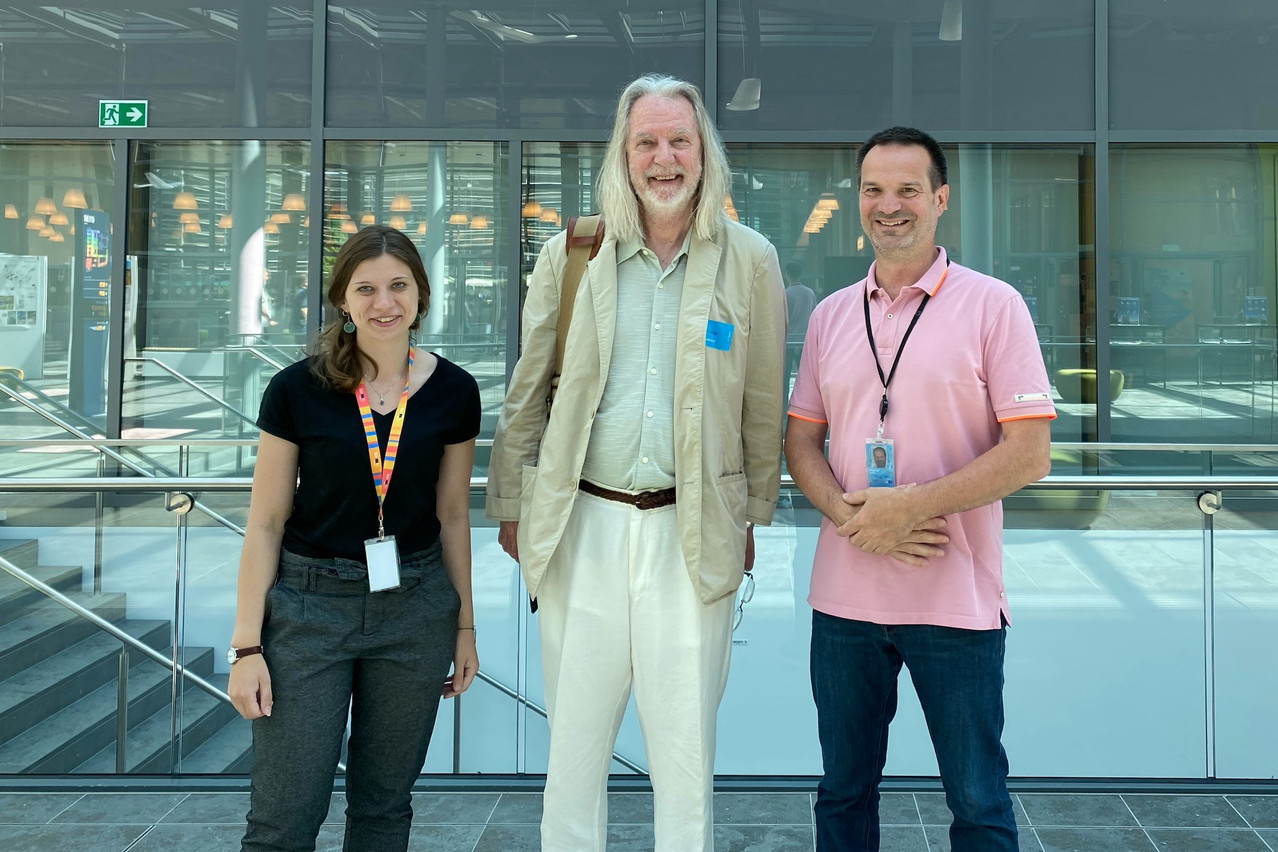“I found Luxembourg to be a really impressive model for how people can learn to engage with others,” reports Keith Knutson, history professor at Viterbo University in Wisconsin, USA.
As part of a sister city agreement between Junglinster and the Wisconsin town of La Crosse, where Viterbo is located, Knutson recently spent two weeks visiting the Lënster Lycée International School.
This was the first trip in planned between the two cities, masterminded in large part by Marc Zimer, a physics teacher at the Lënster Lycée with distant (but reunited) family in Wisconsin. This summer, 24 students from the Junglinster high school will visit Wisconsin, with American students to return the favour in 2024.
“Emblematic”
In an interview, Knutson was particularly taken with the internationality of the Lënster Lycée and of Luxembourg in general. “Students [in Junglinster] are speaking at least three, four, maybe even five languages, which is quite radically different from my experience in the United States.” This type of diversity, he says, is “emblematic” of humanity’s future.
Knutson, who teaches classes on Western civilisation, the EU, American government, and other subjects, even suggests a correlation between this multilingualism and the societal health of the nation: “The variety of languages people were speaking--that I, in my limited two weeks, experienced--it really shows, to me, a valuable lesson on how a small country like Luxembourg can prosper.”
The grand duchy is of course well known as an intersection (and sometimes free-for-all) of languages, but the contrast with the situation in American society is, for the professor, stark. Not only is English the primary language (“there’s a general prejudice that people [in the USA] are going to speak English--and that trickles down through almost the entire society”), but other languages are also, he says, losing ground.
“The teaching of foreign languages and even the encouragement of it has been quite diminished,” he says, adding that Viterbo used to offer French, Italian and German but doesn’t any longer. (The Spanish programme is alive and well, however.)
“[Embracing multilingualism] is not what’s going on, to some extent, in my own society,” he says. “That is, people are talking about building walls and are sort of suspicious of outsiders.”
“Broaden our imaginations”
For his part, Knutson finds the burgeoning relationship between the cities an overwhelming positive. “This opportunity of immersing oneself into the society--I think this is really helpful for those who get to experience it and learn… then bring it home, share these experiences and broaden our imaginations about what we think of other human beings.”
But there is also, of course, the question of what we think of what other human beings eat. Asked to highlight a Luxembourgish dish he tried, the professor immediately mentions kniddelen. “It was wonderful.”
